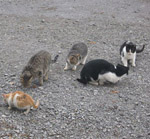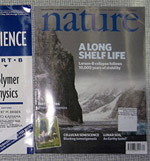Biodiversity may reduce infectious disease, study shows
 Biodiversity
Biodiversity Researchers at Oregon State University have shown for the first time that loss of biodiversity may be contributing to a fungal infection that is killing amphibians around the world – a finding that provides more evidence for why biodiversity is important to many ecosystems.
The research, published in Proceedings of the National Academy of Sciences, used laboratory studies of amphibians to show that increased species richness decreased both the prevalence and severity of infection caused by the deadly chytrid fungus, Batrachochytrium dendrobatidis.
“With greater diversity of species, you get a dilution effect that can reduce the severity of disease,” said Catherine Searle, an OSU zoologist and lead author on the study. “Some species are poor hosts, some may not get infected at all, and this tends to slow disease transmission.
“This has been shown in other systems like Lyme disease which infects humans, mice and deer,” she said. “No one has really considered the dilution effect much in amphibians, which are experiencing population declines throughout the world. It’s an underappreciated value of biodiversity.”
It’s generally accepted, the researchers said, that a high diversity of species can protect ecosystem function, help to recycle nutrients, filter air and water, and also protect the storehouse of plant or animal species that may form the basis of medicines, compounds or natural products of value to humans.
Protection against the spread of disease should more often be added to that list, they said.
“Emerging infectious diseases are on the rise in many ecosystems,” said Andrew Blaustein, a co-author on this study, professor of zoology at OSU and leading researcher on the causes of amphibian declines.
“Protection of biodiversity may help reduce diseases,” he said. “It’s another strong argument for why diverse ecosystems are so important in general. And it’s very clear that biodiversity is much easier to protect than it is to restore, once it’s lost.”
The fungus, B. dendrobatidis, can lead to death from cardiac arrest when it reaches high levels in its amphibian hosts. It is not always fatal at lower levels of infection, but is now causing problems around the world. One research team has called the impact of the chytrid fungus on amphibians “the most spectacular loss of vertebrate biodiversity due to disease in recorded history.”
Amphibians face threats from multiple causes, including habitat destruction, pollution, increases in ultraviolet light due to ozone depletion, invasive species, and infectious disease.
The dilution effect can occur in plants and animals, but also in human diseases. In a different report published last year in Nature, researchers noted an increased risk of West Nile encephalitis in the U.S. in areas with low bird diversity. And in more diverse communities, the infection of humans by schistosomiasis – which infects 200 million people worldwide – can be reduced by 25-99 percent.
--Reprinted from Oregon State University with editorial changes




Reader Comments